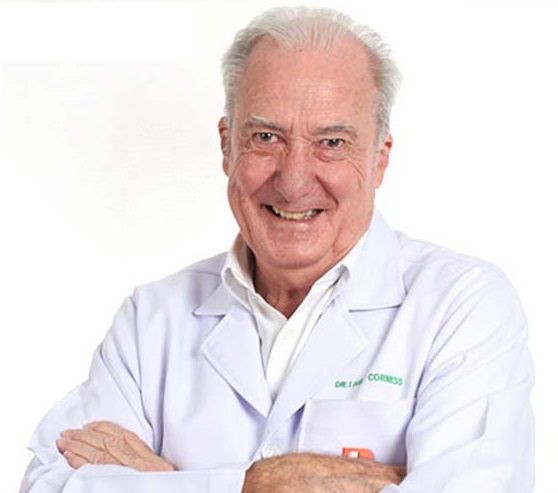

I was stopped by a chap in the hospital lobby who was kind enough to ask about my dear old Mum. I hadn’t mentioned her for a while and he was hoping she had not been referred upstairs to see the Higher Physician. Unfortunately, Mum had passed, even through the hard winters in the north of Scotland breeds tough people, in fact Scotland has more centenarians than anywhere else in the British Isles.
So to my friend Alan. As a spritely, feisty 70 year old, a few years earlier he completed the cross bay charity swim. Very much ‘alive’ at that time, but who succumbed to bowel cancer. Previously I had witnessed someone with this cancer remarkably recover. A true miracle, and one that I had mentioned to Alan. I have kept his SMS on my phone where he says, “Well, I need that second miracle in your life … the cancer has gone too far.” Unfortunately, Alan was denied that miracle. I miss him a lot.
So what should you do if given a diagnosis of “cancer”? It is not a ‘hit or miss’ diagnosis. It is not a diagnosis we take lightly. In many instances, the diagnosis may completely alter the lifestyle of the person. It may even herald the beginning of the end, as was the case with Alan. It is at this stage you should be told whether the cancer is benign or malignant. If it is benign, you can live with it. If it is malignant, you may not be able to live with it.
So what should you do after getting the bad news? The first thing to do if you feel there may be some doubt about the diagnosis, is then go and get a second opinion, or even a third. It is your body and your life that we are talking about.
Now, it is important for you to find out just how advanced is your cancer. Is it still at the stage of being just a primary, or has it spread, called secondaries or metastases?
This next piece of advice is somewhat contentious, but represents my thoughts on the situation, after 40 years of medical experience. (That’s why they call it medical “practice” – eventually you get it right.)
There is a scanning procedure called a “PET” scan (positron emission tomography) which can help to demonstrate a cancer, stage a cancer, show whether a lump is cancer or not, to show whether a cancer has spread to other parts of the body (metastasized), assist in choosing the best treatment for your cancer, to show how well cancer drug treatment is working and show the difference between scar tissue and active cancer tissue. With some cancers, PET scans are often used to look for cancer in the lymph nodes in the body, or to show whether the cancer has spread to other areas such as liver, brain and bones. This can help your specialist (and you) to decide whether it is possible to remove the cancer with surgery.
Unfortunately, PET scans are not cheap, and not every hospital has one. In fact, very few. The only one I know is in the Wattanasoth Cancer Hospital in the Bangkok Hospital ([email protected]). I believe that the most logical step after the biopsy is the PET scan. You need to know whether your cancer is localized, or has it spread? If it has, how many metastases are there, and where in your body do they lie?
Now with all the information before you, as to the type of cancer you have, knowledge of its aggression and response to treatment and whether it is still localized or otherwise, means you can make an informed decision on your future.
For me, if I had a localized tumor with a good response to surgery/chemo/radiotherapy I would go for full-on treatment. If I had a tumor that had spread everywhere with a poor response to treatment I would go to Disneyland.
Finally, there is a new government approved “Living Will” form which is available through the hospital. I recommend lodging one with us.
 |
 |
 |





